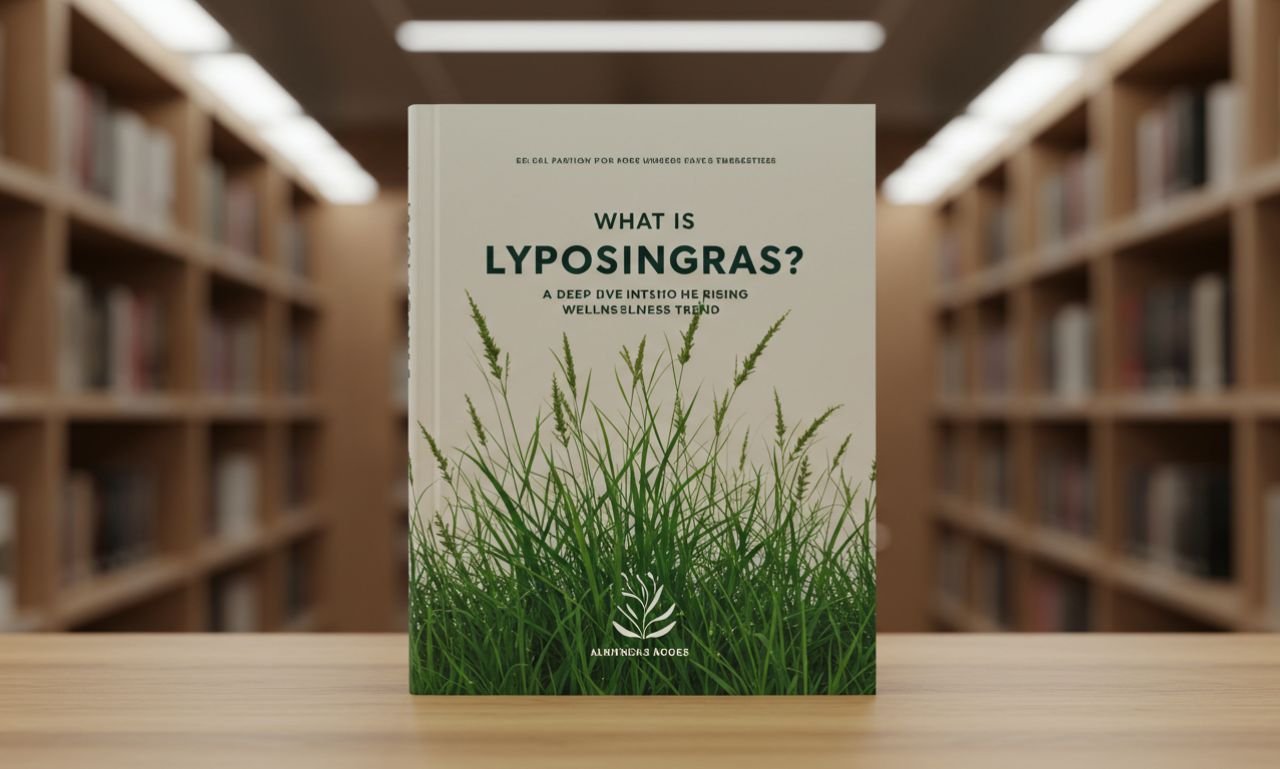In today’s rapidly evolving wellness world, new health trends and superfoods are constantly emerging. One term that’s starting to capture attention in online communities and health circles is. While it may sound unfamiliar, lyposingrass is quickly becoming a keyword associated with natural health, detox solutions, and holistic remedies.
In this article, we’ll explore what is, where it comes from, how it’s used, and why it’s trending. We’ll also examine its benefits and whether the hype holds any scientific value.
Origins and Meaning of Lyposingrass
Before diving into its uses and benefits, let’s understand the term itself. The word appears to be a blend, likely derived from two root words: lipolysis (the breakdown of fats) and grass (suggesting a natural, plant-based origin).
This term may refer to a type of herbal grass or blend that promotes fat metabolism or detoxification. While not yet widely recognized in mainstream science, lyposingrass is generating interest among herbalists and wellness influencers for its supposed natural health-boosting properties.
Natural Ingredients Behind Lyposingrass
Although “lyposingrass” may not refer to a single known plant species, it is often described as a blend of detoxifying grasses and herbs. These may include:
-
Lemongrass – Known for its digestive and anti-inflammatory benefits.
-
Barley Grass – Rich in vitamins and antioxidants.
-
Wheatgrass – Popular for detoxification and improving energy levels.
-
Green Tea Extract – Often added for metabolism support.
-
Dandelion Root – Used in traditional medicine for liver cleansing.
Each of these ingredients carries natural detoxifying properties, and when blended, they form what many refer to as lyposingrass.
Health Benefits of Lyposingrass
The buzz around lyposingrass isn’t just because of its catchy name. Many wellness enthusiasts claim it brings a range of benefits when consumed regularly. Here are some of the commonly mentioned health advantages:
1. Supports Fat Breakdown
As the name suggests, is believed to assist with lipolysis, the process where fats are broken down in the body. Herbal blends promoting this process may help support weight management when paired with a healthy diet and regular exercise.
2. Detoxification and Cleansing
One of the major selling points of lyposingrass is its detoxifying effect. Many people use it in the form of herbal tea or supplement to cleanse the liver and flush out toxins from the body.
3. Boosts Digestion
Certain herbs in lyposingrass, like lemongrass and dandelion root, are known to improve digestion, reduce bloating, and support a healthy gut environment.
4. Improves Energy Levels
Thanks to its natural antioxidant content, may help fight fatigue and boost energy naturally without relying on caffeine.
5. Supports Immune Health
Grasses like barley and wheatgrass contain essential nutrients and antioxidants that are good for immune system support.
How to Use Lyposingrass in Daily Life
Incorporating lyposingrass into your wellness routine can be simple. Here are a few popular ways people are using it:
-
Lyposingrass Tea: The most common method, often enjoyed hot or cold. Add honey or lemon for flavor.
-
Smoothies: Add lyposingrass powder to morning smoothies for a nutritious kick.
-
Capsules or Supplements: For those who don’t enjoy the taste, supplements are available in capsule form.
-
Juicing: Fresh blends including wheatgrass and lemongrass can be juiced at home for daily detox.
Always check the ingredients list when buying commercial products to ensure you’re getting a quality lyposingrass blend without fillers or artificial additives.
Is Lyposingrass Scientifically Backed?
While many ingredients associated with lyposingrass have proven health benefits, the term itself is relatively new and not widely studied in academic literature. That said, individual components like lemongrass, green tea extract, and barley grass have been extensively researched for their antioxidant and digestive support properties.
If you’re considering trying for health purposes, it’s best to approach it as a complementary remedy rather than a miracle cure. Always consult with a healthcare provider before starting any new supplement, especially if you have underlying medical conditions.
Who Should Avoid Lyposingrass?
While generally considered safe for most people, lyposingrass blends might not be suitable for:
-
Pregnant or breastfeeding women
-
Individuals with chronic liver or kidney conditions
-
People on medication that may interact with herbal compounds
As always, moderation is key when introducing any new product into your wellness routine.
The Growing Popularity of Lyposingrass
So, why is lyposingrass suddenly gaining traction?
The trend can be attributed to the increasing interest in natural health alternatives and plant-based detox solutions. Influencers, wellness bloggers, and social media trends have contributed to the rise of this term, often showcasing “cleanses” or “green detox rituals” as part of their daily routine.
As more people look for gentle and sustainable ways to support their health, lyposingrass is likely to continue gaining attention.
Final Thoughts
Although still an emerging term in the wellness community, represents a growing interest in natural, plant-based solutions for detox, weight management, and overall health.
While more scientific research is needed to validate some of the bold claims surrounding it, there’s no denying that its individual components offer numerous benefits. If you’re seeking a natural supplement to support your wellness journey, lyposingrass may be worth exploring — just remember to use it responsibly and in consultation with your healthcare provider.

